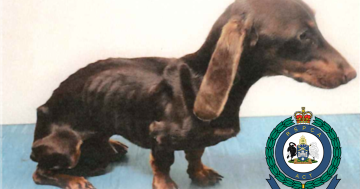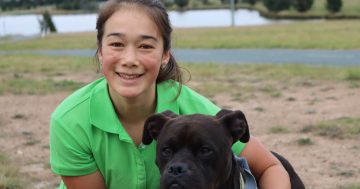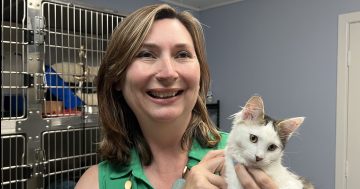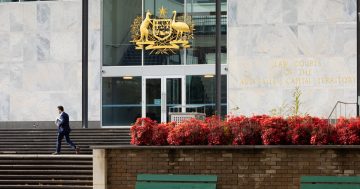
A dog seized from a breeder in an RSPCA NSW raid in 2020. Photo: RSPCA NSW.
CONTENT WARNING: this article may cause distress to come readers.
The ACT might lead the nation when it comes to the strictness of our animal welfare laws, but after a sharp increase in the number of starved dogs, inspectors are beginning to wonder if they’re just hollow threats.
Five domestic dogs – abnormally thin and weak due to a lack of food – were taken in by RSPCA ACT over one week in October.
RSPCA ACT CEO Michelle Robertson describes this sudden spike as “incredibly unusual”.
“We’ve had periods where really skinny, emaciated dogs come in, but it’s on and off,” she says.
“We’re now just really concerned.”
The dogs were found as a result of animal abuse reports. RSPCA ACT inspectors seized the obviously neglected dogs from their owners during their routine investigations of each report.
Once in the care of the veterinarians, the level of starvation is determined by measuring the extent the dog’s ribs and backbone are protruding through the skin against a body-scale chart, similar to the Body Mass Index (BMI) for humans.
“Two out of five of these dogs were really starving,” Michelle says.
“It takes time to get a dog to that level of starvation. You don’t ‘forget’ to feed your dog for one night and the next it looks like that.”
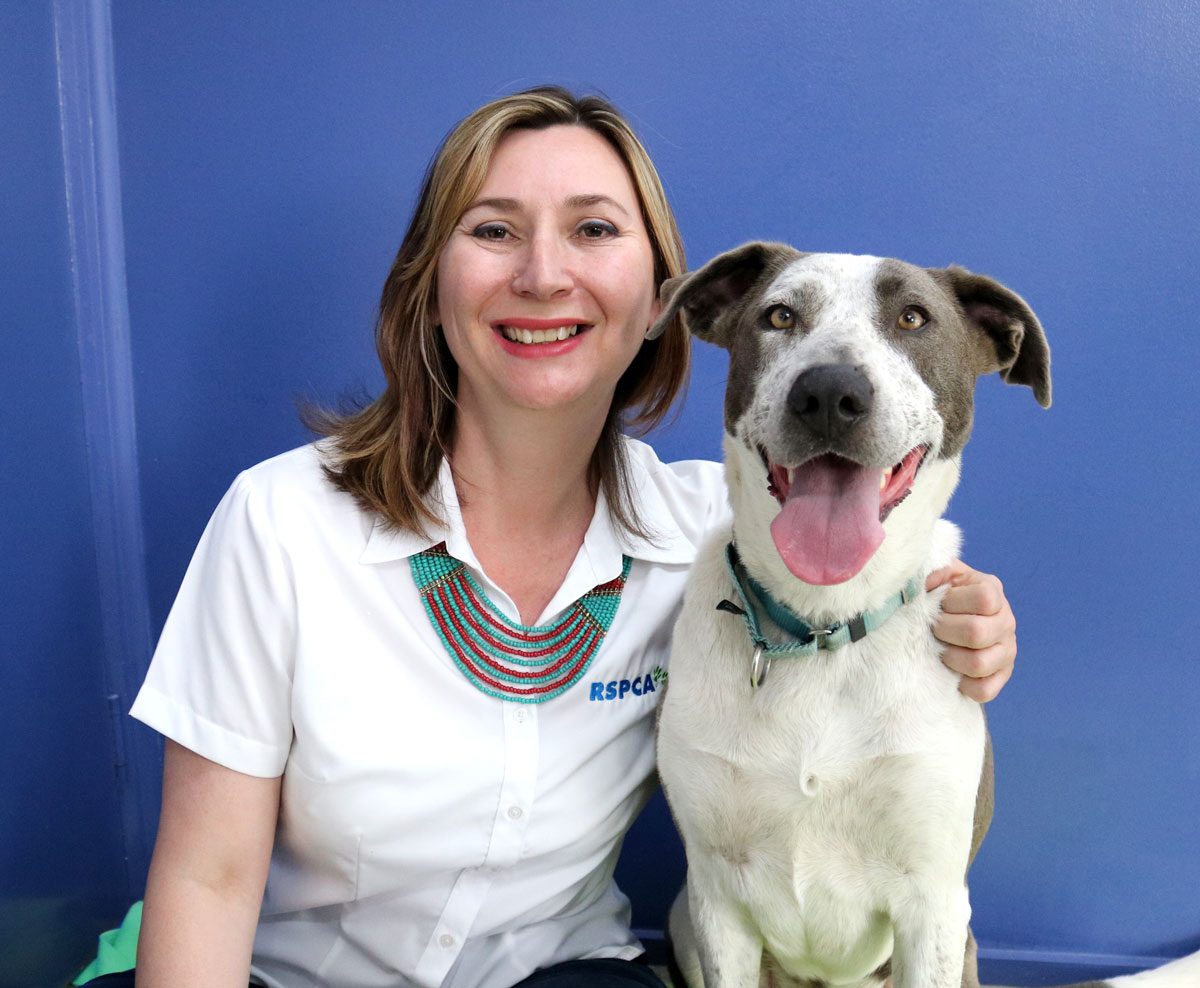
RSPCA CEO Michelle Robertson says it’s no use having the harshest penalties for animal cruelty if they are not used. Photo: Supplied.
Last month, a 37-year-old woman appeared before the ACT Magistrates Court and pled guilty to a charge of aggravated cruelty to an animal causing death. She had starved her German Shepherd, Lucy, by keeping her inside and feeding her minimal amounts of food.
RSPCA ACT and rangers were called to the home in June 2021 and found the dog’s body wrapped in a white sheet in the backyard. A veterinarian reported Lucy had been suffering from malnutrition and illness caused as a result of starvation at the time of her death.
However, the woman was spared a conviction over her actions after the court heard she had such poor mental health she was unable to care for herself, let alone her pet.
Michelle says the sudden increase in cases like these could be attributed to “a lot of struggle in the community at the moment”, specifically when it comes to cost-of-living pressures and mental health.
“But whatever the reason, it’s not good enough that the pet pays the price,” she says.
“If you can’t look after your pet the way they should be looked after, get help. There is help available.”
RSPCA is entitled to seize an abused animal under the ACT’s Animal Welfare Act, but depending on the severity of the situation, it may be returned under very strict written directions. Inspectors will then follow up to make sure the owner is adhering to these directions.
“In other instances, we launch a full-scale investigation, gather evidence and put that through to prosecution in court,” Michelle says.
In Lucy’s case, the woman was sentenced to a 12-month good behaviour order and banned from keeping animals for two years.
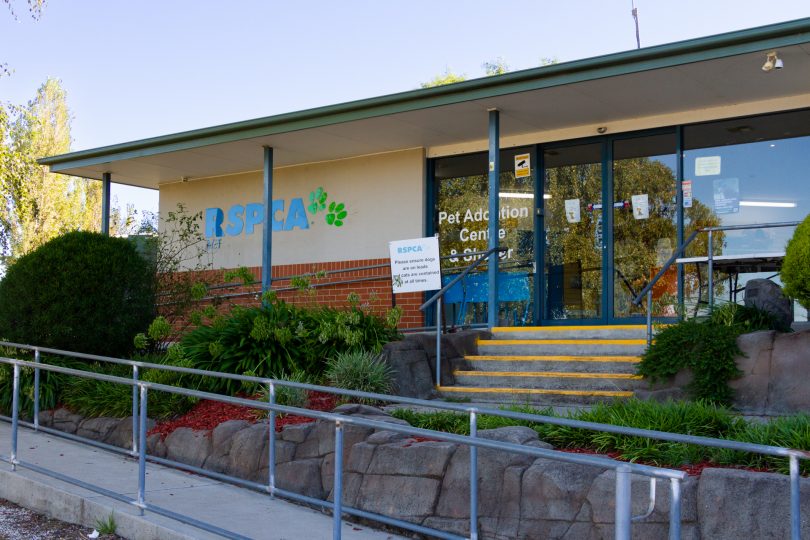
RSPCA ACT, Weston. Photo: James Coleman.
Michelle says the ACT has some of the best animal welfare legislation in the country, but it’s only worth as much when the maximum penalties are meted out where appropriate. In some cases, this would take the form of a lifetime animal ban or at least a ban of 10 years.
“It is slightly disappointing to us that these maximum penalties are very rarely awarded,” she says.
“Our desire always is to solve the problem. There are always reasons, but the ultimate fix has got to do with what that owner is prepared to do. We don’t just want to take punitive measures, it’s very much about rectifying behaviour.”
RSPCA ACT appeals to animal owners who cannot adequately care for their pets or are in crisis to seek help.
“We call on these owners to urgently surrender or rehome their animals, thereby ensuring that they can be provided with the love and care they deserve,” Michelle says.
Phone RSPCA ACT on 02 6287 8100 to find out about support and assistance with pets. Report a case of animal cruelty on the RSPCA ACT website.












